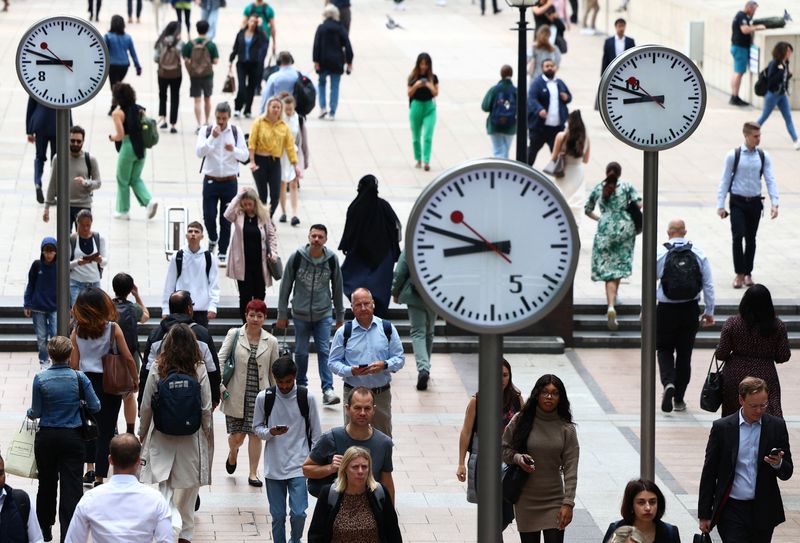By David Milliken
LONDON (Reuters) - Britain has received a surge in job searches from overseas during the past year, partly reflecting a post-Brexit relaxation in work visa rules for non-European Union nationals, figures from recruitment website Indeed showed on Tuesday.
A record 5.5% of searches for British jobs on Indeed's website in June came from potential applicants outside the country, up from 4.4% a year earlier and an average of 3.6% from 2017 to 2019.
Pawel Adrjan, Indeed's director of research for Europe, the Middle East and Africa, said the increase showed a growing interest in higher-skilled jobs like software development from non-EU applicants, and a shift from lower-skilled roles European workers had filled before Britain left the EU in January 2020.
"The UK government's new immigration policy is operating as intended," Adrjan said.
EU-based job seekers accounted for 1.4% of Indeed's UK job searches in June - down slightly from before Brexit - while non-EU interest has more than doubled to 4.1% of searches. India, Nigeria, South Africa and Pakistan were some of the main origins for searches.
The Bank of England has focused on labour shortages as wage growth has accelerated to its highest in more than 20 years despite a recent fall in inflation.
The UK government phased out most EU nationals' unrestricted right to move to Britain to work after Brexit.
However, visa rules were relaxed to no longer require employers to show they were unable to hire a British or EU worker, as long as they were for roles that paid at least 26,200 pounds ($33,431) a year - slightly below Britain's average annual wage - and offered at least the going rate for that type of job.
Lower-paid workers can receive visas in areas with acute labour shortages, mostly in health and social care.
But employers in sectors such as hospitality and lower-paying areas of manufacturing and construction now struggle to recruit from overseas.
In 2022, Britain had record net migration of 606,000, according to official estimates.
Immigration to developed countries has rebounded in recent years, fuelled by tight labour markets and aging populations, Adrjan said.
Canada and Australia have seen foreign-origin job searches roughly double since 2019 to 10.9% and 17.2% of total job searches for those countries respectively, according to Indeed, which claims 330 million unique visitors each month.

By contrast, the figures for overseas job hunters targeting the United States and the EU were 3.4% and 2.7% respectively, both barely changed from before the pandemic, according to Indeed.
($1 = 0.7837 pound)